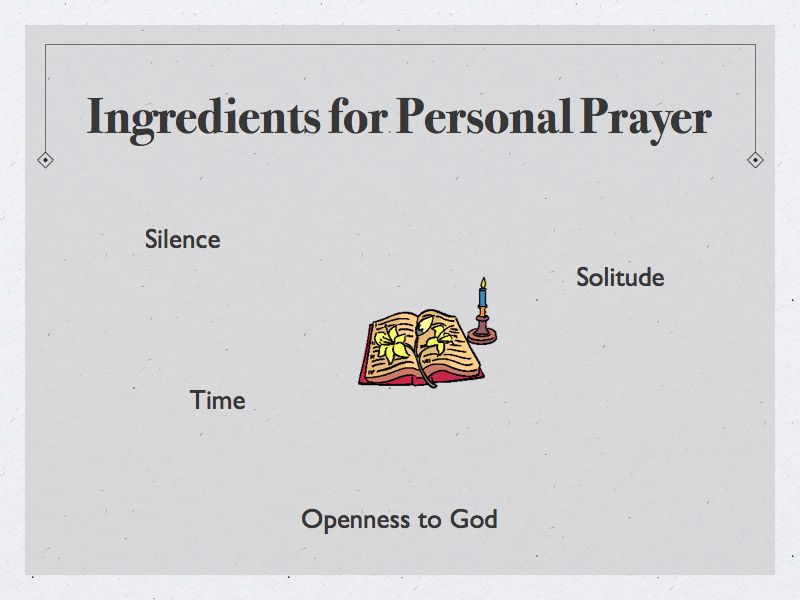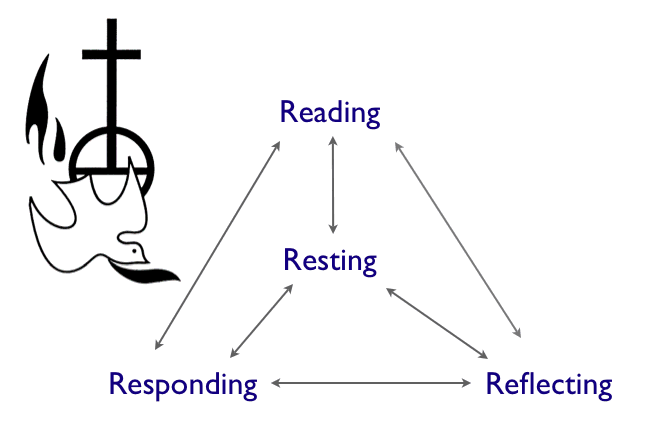 Prayer Prayer
Our Dialogue With God
We know the answer to this from our own life experience. First, we must spend time doing things with the other. These shared activities might be related to work, play, or just living everyday life. The second is that we need to take time to talk and listen to each other, especially concerning what's really important in our lives. There is much more to relationships that this, but these seem to be the most important. When we fail to do things with another and/or to take time to communicate with each other, the relationship will weaken. If we attend to these two areas, the relationship will grow stronger. How could it be otherwise? God made us to know relationship in our distinctly human manner, and so if we are to draw closer to God, we need to do basically the same kinds of things we do to help our human relationships grow. We need to spend time sharing activities with God, and this happens whenever we act in a loving manner. We read in 1 John 4 that God is love, and so whenever we act lovingly, we are acting with God. This can happen in the most ordinary events of our everyday lives; we can be joined with God all throughout the day if we are mindful of loving. As in our human relationships, we also draw closer to God by taking time to communicate with Him. We tell God what's on our hearts and minds, where we'd like help in our lives, others we're concerned about, things we're grateful for, sorry about, and so forth -- same as we do when talking to another person. We also take time to listen to God. What would a relationship be if we did all the talking? Listening to God is obviously different from listening to another human being, whom we can see, hear and even touch. But there are many ways that God speaks to us, and we can learn to tune in more to hear what God is saying.
What we learn from God's revelation through the Jewish people and Jesus is that God is loving and communicative. God wants to be in relationship with us. That's pretty amazing, when you stop and think about it. And because God is our Creator, God knows how we relate in our human nature, and how to communicate with us. Of course, we have to be open to hearing what God has to say. What do you think about that? Are you open to hearing what God has to say to you about your life? About who God is, and what God expects of you? About God's plans for you?
God can speak to us in many ways: through our thoughts, feelings, the words of others, nature, the teachings of the Church, and so forth. When we come to personal prayer time, however, we use Scripture to help us listen to God. As The Catechism of the Catholic Church notes:
There is a method of praying with Scripture called Lectio Divina that enables dialogue with God. Here's how it works. First, you choose a passage of Scripture that you will pray with. It might be the Gospel reading used in the liturgy of the day, or anything else you want. The process then follows these steps:
Notice how similar this is any dialogue with another person. We listen to each other, share what's on our minds and hearts, respond to this sharing, and sometimes we just enjoy being together in the quiet. As with any conversation, too, we need to allow for spontaneity in the exchanges. There are four steps outlined above, but they need not take place in that order. Maybe you want to begin by sharing with God an experience, then after awhile go on to reading. Or maybe you even want to begin with an extended period of silence. The illustration below can help to indicate how the flow might go . . . in any which direction . . . like a dance, of sorts . . . we let the Spirit lead the way.
|
 The word "dialogue" simply means "conversation with God." The prefix, "di," means "two" and "logue" means "speech." Two-speech! That's different from "monologue," which means "one-speech," or one speaker. For many people, that seems to be what prayer is. They talk to God, mostly when they need something, but don't realize that God is also wanting to converse with them.
The word "dialogue" simply means "conversation with God." The prefix, "di," means "two" and "logue" means "speech." Two-speech! That's different from "monologue," which means "one-speech," or one speaker. For many people, that seems to be what prayer is. They talk to God, mostly when they need something, but don't realize that God is also wanting to converse with them.
